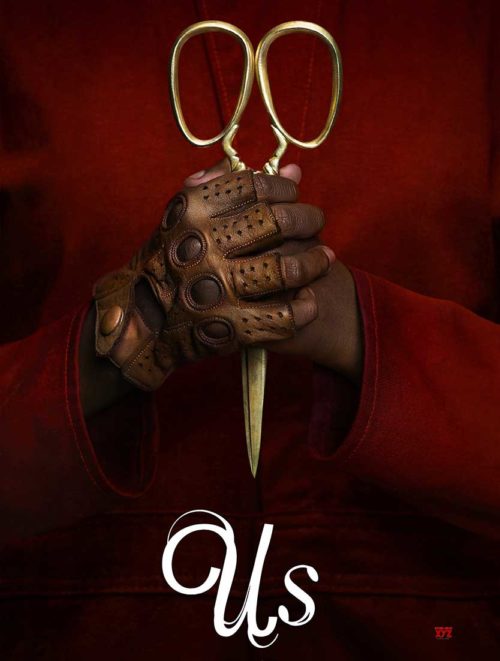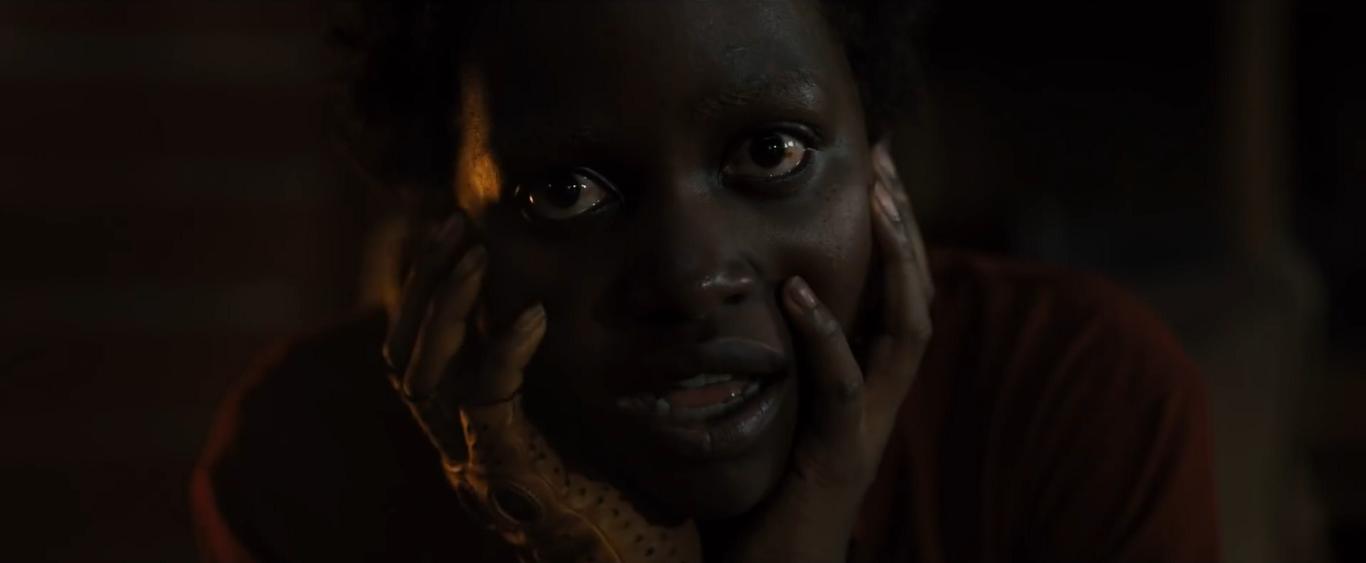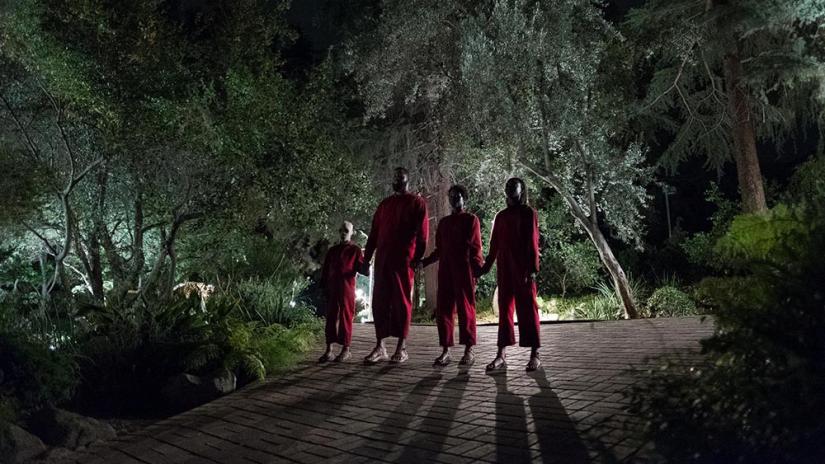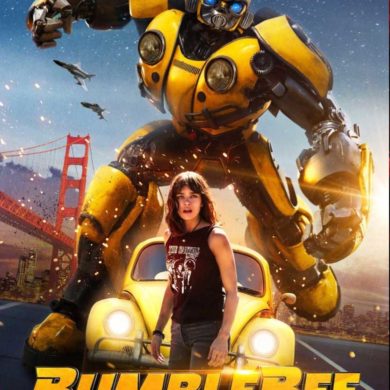
THERE ARE SPOILERS IN THIS REVIEW!
I personally believe that they’re minor spoilers, but if you don’t want to be ruined on any of it I wouldn’t proceed.
Come back after you’ve seen the movie.
Us (2019) is Jordan Peele’s follow up to Get Out (2017), the wildly successful horror film that received a Best Picture nomination at the Academy Awards.
Whether you found Get Out scary or not is subjective, but it’s hard to argue that the film’s success (particularly outside the horror community) was predominately due to the film’s social commentary.
Us for better or worse, follows the lead of its predecessor.

Us tells the story of Adelaide (Lupita Nyong’o) and her family as they spend the week at their summer beach house. They’re a typical American family. The son curses; the daughter rolls her eyes; the nerdy father is excited about his new boat. Adelaide, however, is troubled.
As a child she experienced a traumatic event at a carnival when she came face to face with a little girl who looked exactly like her. Despite having not seen this little girl since that night, Adelaide is convinced that she will come for her one day. Early in the film she confesses these facts to her husband. On the exact same night that she confides in him, her doppelganger comes for her. What a coincidence!
Her doppelganger is accompanied by a family of her own. They’re the identical mirror counterparts to Adelaide and her family.

The family forces their way into the home and take our protagonists hostage. At this point, Evil Adelaide gives a speech, her voice hoarse and cracked. While this strange voice is explained later in the film it’s extremely cheesy in the moment and it was difficult for my audience to hold back their laughter.
Evil Adelaide explains that they’re “shadows” and that they’re “tethered” to Adelaide and her family. The audience later learns that there are an army of shadows – perhaps one for every person in the world. This army of shadows has risen, and they’re killing their real-world counterparts indiscriminately.
While this army’s objective is never made explicitly clear, it’s implied that they want to take their counterparts place, Invasion of the Body Snatchers style. The second act of the film is your basic run/chase/fight horror movie. Although it should be noted that, in typical horror movie fashion, the “shadows” kill random people without hesitation while allowing our protagonists plenty of time to escape.
Unfortunately, the film tries to create a plausible story line reason for why these evil doppelgangers exist and are attempting to take over a world in the third act. This is where the film falls short. In a speech that gives The Architect from The Matrix Reloaded a run for his money, the audience is informed that the “shadows” were created by a nebulous “them” as part of an experiment.

They’re clones who literally mimic the movements of their counterparts and are being held captive underground. Tired of living this miserable existence, the “shadows” revolt and attack their above ground doppelgangers.
As a metaphor Us works. I’ve seen articles suggest that the “shadows” represent everything from differences in race to class to our views on climate change. Honestly, you could probably shoehorn any marginalized group into the role of “shadows” and make it work. After all, there’s probably someone exactly like you in this world who is worse off than you through no fault of their own. Someone who is being held down due to the circumstances they were born into. Can we really fault the oppressed for rising up against their oppressors?
You could also see a lot of our own political climate in the film too. Our characters are confronted with their darker sides and they can’t recognize themselves. One needs only glance at the internet for five seconds before wondering whether everyone has been secretly replaced by an evil doppelganger when they weren’t looking. Before you even know it the entire world has been replaced by hate and violence.
Which one of these interpretations is correct? Are any of them correct? I’m not sure. There are dozens of different ways you can interpret this film. Unlike Jordan Peele’s last film, Get Out, which was fairly straightforward with its message, there is no one way to interpret the message here. Whether that makes Us genius or nonsense is completely up to you.

That being said, as a horror film Us falls short. I’ve dedicated so much of this review to the subtext of Us that I’ve barely mentioned much about the actual story. Honestly, there isn’t that much there. The first two acts were entertaining, although it was your typical horror film. The final act was convoluted as it attempted to justify its own concept. There are some good laughs and thrills though; the writing felt organic and Lupita Nyong’o was amazing as always. I wouldn’t say it’s a must watch, but it’s worth checking out if you’re looking for a horror film with some thought behind it.
Overall, Us is more concerned with its subtext than its story and that hurts the film overall. Story and subtext should go hand and hand, and Us decided to embrace the latter over the former. It doesn’t stop to ask whether the literal events happening on the screen make sense, which under closer scrutiny they really don’t. There is a twist at the very end of the film that offers the audience a lot to think about, but that doesn’t add anything to the story overall. That basically sums Us up.
Watch the trailer for Us (2019):
[embedyt]https://www.youtube.com/watch?v=hNCmb-4oXJA[/embedyt]



